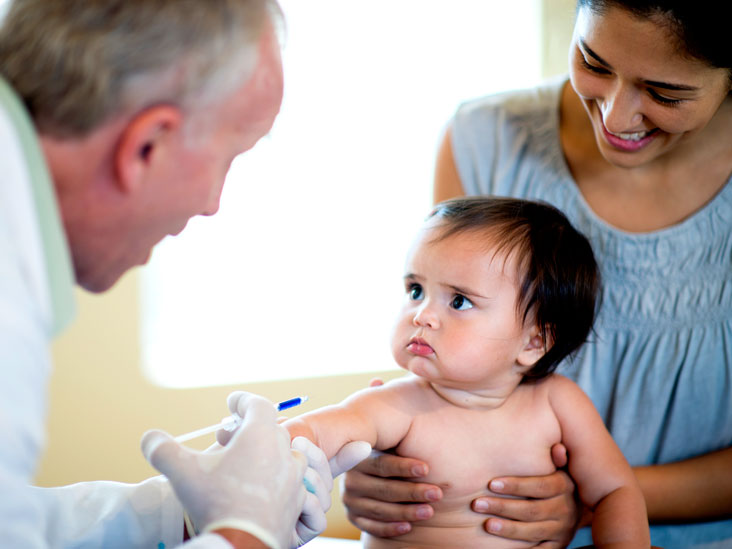Immunization- Mother and Child

Immunization is a process wherein a person’s natural immune system is triggered to protect the person from a particular infection in the future. This is done by giving the person a vaccine, which contains disease-causing germs that are either dead or too weak to cause any disease. These vaccines stimulate the body’s immune system to produce antibodies that protect the body from disease-causing germs.
Recommended Immunization during pregnancy
As a mother, you pass the immunity to your child in the womb. Immunization at the time of pregnancy protects you and your baby against many infections and diseases. Here is a list of various safe vaccinations which can protect you and your baby against many infections and diseases.
Influenza
According to the Centers for Disease Control and Prevention (CDC) and the American College of Gynecologists (ACOG) pregnant women should get immunized against the inactivated (shot form) flu vaccine while pregnant. It has been observed that women get infected with the flu during pregnancy have a greater risk for serious problems for their unborn baby such as premature labor and delivery. Flu vaccination not only protects the mother but the child also, as the child receives his flu vaccine only at 6 months from the age.
Tdap (Tetanus, diphtheria, and pertussis)
Tdap vaccine protects against three deadly diseases tetanus, diphtheria, and pertussis (whooping cough). This vaccine is essential in spite of the fact that the mother has been immunized before or not. Tdap should be administered between 27 and 36 weeks of pregnancy to protect against these diseases. Tdap vaccination during pregnancy is important because babies cannot be vaccinated with DTaP (the children’s vaccine against diphtheria, tetanus, and pertussis) till they become two months old and this vaccination will offer them complete protection till 6 months of their age.
According to CDC live vaccines should not be injected into the mother. Some examples of live vaccines are measles, mumps, rubella (MMR), BCG (tuberculosis), smallpox vaccine, typhoid vaccine, and the nasal spray flu vaccine.
Child Immunization
The Indian Association of Paediatrics (IAP) recommends the vaccination schedule that is followed in India ad discussed below:
At birth- The baby is given
- BCG injection (for protection against tuberculosis)
- Oral polio drops (OPV- for polio)
- Hepatitis B immunization
At six weeks – It is recommended that the baby be given shots of
- DTP (protects against diphtheria, whooping cough, and tetanus)
- IPV (injectable polio vaccine)- this protects against polio
- Booster for protection against hepatitis B infection
- HIB vaccine- This protects the child from a type of meningitis
- Rotavirus vaccine- To protect the child from a type of diarrhea
- PCV – this vaccine protects against a pneumococcal disease that can cause a serious infection of the blood, meningitis and ear infections
At ten weeks the baby should receive booster doses of
- DTP
- IPV
- HIB
- Rotavirus vaccine
- PCV
At fourteen weeks, the baby should ideally be immunized with booster doses of the following vaccines
- DTP
- IPV
- HIB
- Rotavirus vaccine
- PCV
At six months, the baby should receive booster doses of
- Oral polio vaccine (OPV)
- Hepatitis B vaccine
At nine months, it is recommended that the baby receive immunization with
- OPV
- MMR vaccine- This protects against mumps, measles and rubella infections
Between nine to twelve months, the baby should be immunized with
- Typhoid vaccine- this protects against typhoid infection.
- Once the baby is a year old, there is a need to protect the baby against hepatitis A infection, which is mainly a water-borne infection that infects the liver.
At 15 months of age, the child should be immunized with
- MMR booster dose
- Varicella vaccine to protect against chicken-pox
- PCV booster
Between 16 to 18 months of age, the child should ideally receive the following vaccines
- DTP booster
- IPV booster
- HIB booster
- Hepatitis A booster dose
At 2 years of age, the child should receive a booster of the typhoid vaccine.
Between 4 to 6 years, the child should receive booster doses of
- DTP
- OPV
- Varicella
- MMR
Between 10 and 12 years of age there is a need to receive booster doses of
- HPV vaccine for girls- this protects against infection by human papilloma virus that can cause cancer of the genital tract in women.
- TD vaccine for protection against diphtheria and typhoid
Sources
https://familydoctor.org/pneumococcal-conjugate-vaccine
https://www.webmd.com/children/vaccines/hib-h-influenzae-type-b-vaccine
https://medlineplus.gov/immunization
https://www.ncbi.nlm.nih.gov/pmc/articles/PMC4928530
http://www.immunizeforgood.com/resource-center/immunizations-pregnancy


